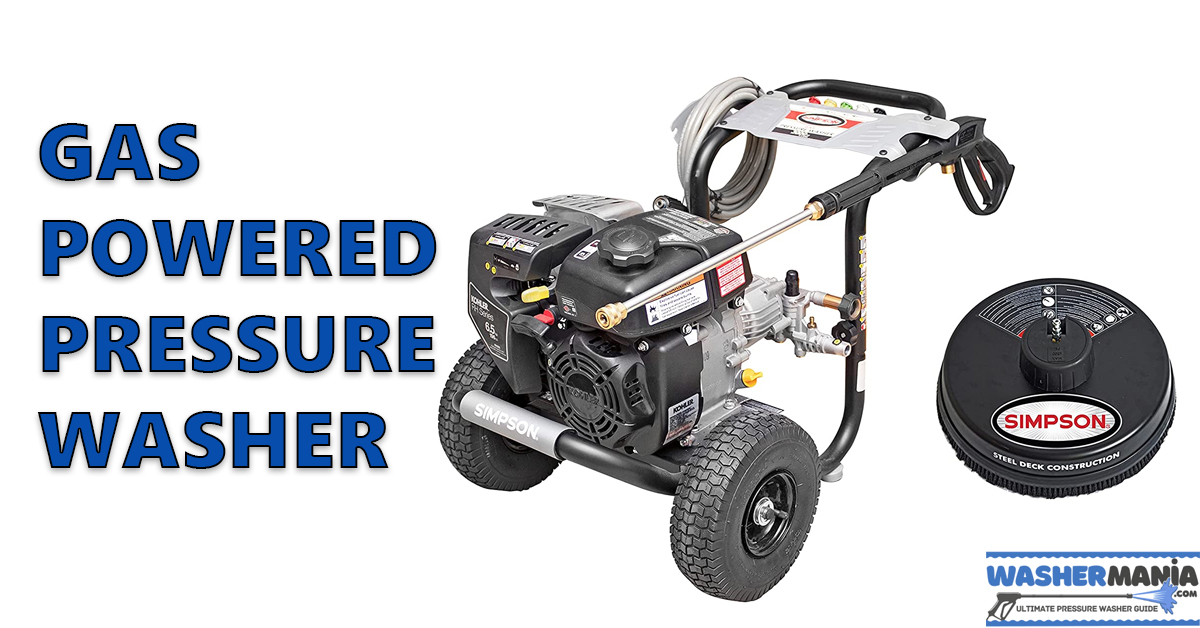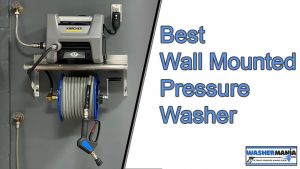The best pressure washer should be easy to use and maintain. It should also be powerful enough to remove dirt from diverse surfaces. There are two different types of pressure washers available on the market, one type is Gas Powered Pressure Washer and the other is Electric Powered Pressure Washer. Depending on the size of your home, an electric pressure washer will probably serve you well but if you have a lot of space to cover, gas powered pressure washers may be preferable because they typically have a higher PSI than electric ones.
Also, consider where you plan to keep the pressure washer when it is not in use because some units are bulky and require space for storage while others can be stored inside tight corners or behind doors with little effort.
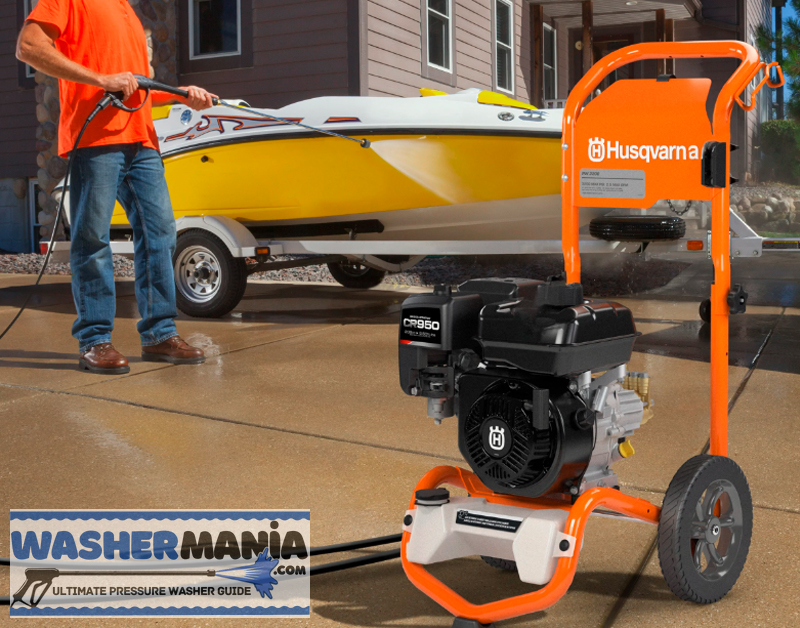
In this article, we will discuss in detail the Gas Powered Washer.
A gas-powered pressure washer uses water pressure and soap to clean dirty surfaces like sidewalks, cars, or boats. This type of pressure washer works just like any other gas-powered machine. You just have to fill it up with gasoline and then start it up! They’re great because they have more power than electric ones, which means they can get through tough stains faster than other kinds of washers can.
A gas pressure washer utilizes pressurized water to remove dirt and grime from surfaces. It’s great for getting rid of mold and mildew on tiles or removing paint from wood. A gas-powered washer works faster than an electric one because it has more pressure, which means less time spent cleaning! They’re ideal for anyone who needs to clean regularly, like homeowners or business owners.
Benefits of a Gas Powered Pressure Washer
There are numerous benefits of using a gas-powered pressure washer. Not only do they have more cleaning power, but they’re also much quieter and don’t require any cords or hoses. Here are just a few reasons why you should invest in one today:
- They offer more PSI than electric pressure washers, the most popular gas-powered pressure is Husqvarna 3200 psi gas pressure washer
- They’re less expensive than other types of washers
- They don’t require any additional equipment like water hoses or electrical outlets
- They can be used both indoors and outdoors
- They’re lightweight and easy to maneuver around obstacles like trees or picnic tables
Don’t wait another minute get the powerful cleaning ability of a gas-powered pressure washer today!. Here is a short list of popular pressure washers manufacturers:
Husqvarna 3200 psi Gas Pressure Washer
RYOBI Gas Pressure Washer
LOWES Gas Pressure Washer
Honda Gas Pressure washer
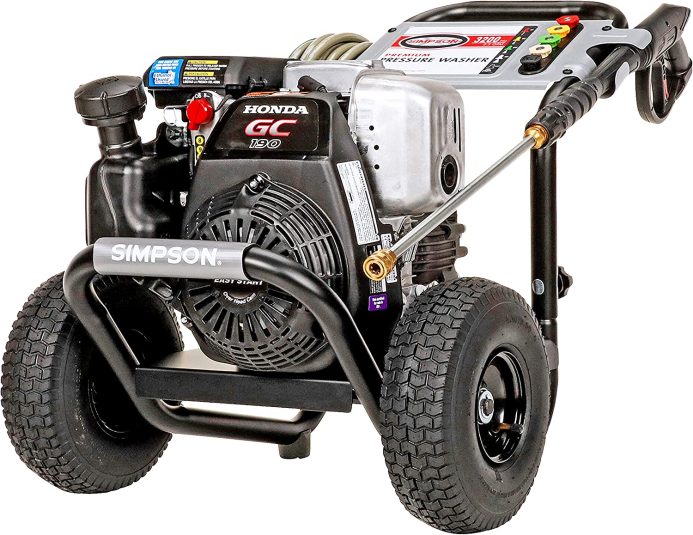
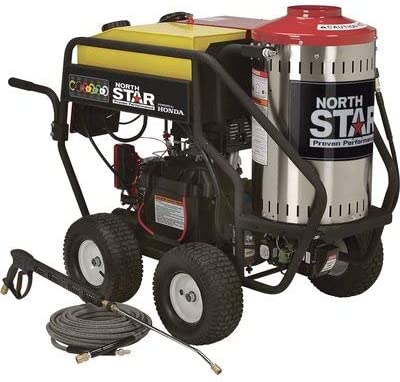
Pressure Washer Maintenance
A pressure washer is a great tool for cleaning your driveway or patio or car, but it requires some upkeep to keep it running smoothly.
Tips on how to maintain your pressure washer:
- Check the oil level regularly and make sure it’s topped off when needed.
- Use only SAE-grade oil (found at any local hardware store). Don’t use synthetic oils as they can clog up the engine.
- Check the fuel tank before each use; make sure there’s enough fuel in there so you don’t run out in the middle of washing something!
- Store your pressure washer in a dry place when not in use (like a garage or shed) to prevent rusting or other damage from moisture buildup.
- Use only the recommended oil mixture; mixing oil types can cause clogs and other problems down the line.
- Don’t let water get into the engine. if you do, dry it out immediately to avoid rusting.
- Make sure you replace belts and hoses regularly according to the manufacturer’s instructions. If they’re not replaced regularly, they can fail suddenly which could cause serious injury or even death!
- Always store your pressure washer in a safe place where children can’t reach it; just like any other powerful tool or appliance, it can be dangerous if not used properly!


Advantages of a Gas Powered Pressure Washer
- The gas pressure washer has several advantages over electric models. It’s quieter than an electric model, and it doesn’t require a long power cord like an electric model does.These washers are great because they’re extremely powerful and efficient. They can get any job done easily and quickly.
- They’re also safe to use because they don’t have any toxic chemicals as some other washers do. You can use them around kids or pets without worrying about them getting hurt.
- Another advantage is that they don’t make much noise like electric washers do. They’re perfect for doing chores early in the morning or late at night when you don’t want to wake up your neighbors or family members with all that noise!
- A typical electric pressure washer will have a PSI rating of 1,000 while a typical gas pressure washer will have a PSI rating of 2,000 or higher.
- A gas pressure washer also requires less maintenance than an electric one does because there are fewer moving parts and no risk of electrocution if something goes wrong with the electrical components as there would be with an electric model. The only thing you need to do regularly with a gas-powered model is replace the oil and filter every once in a while just like you would with any other type of engine vehicle.
Disadvantages of a Gas Powered Pressure Washer
The pressure washer is perfect for cleaning your driveway or patio. But there are some downsides.
- The main problem with gas-powered pressure washers is that they’re expensive. They cost thousands of dollars and require expensive fuel to run them properly.
- Another issue with gas-powered washers is that they’re loud.
- Finally, most gas-powered pressure washers only have enough power to clean surfaces up to about six inches deep; anything deeper than that and they won’t be able to remove dirt effectively.
FAQ’s
How to start a gas pressure washer?
1. A level surface must be available for the pressure washer, and the water strainer must be in place and clear of obstructions.
2. A garden hose should be connected to the washer and your water supply at the other end.
3. After that, attach the male end of the included high-pressure hose to the water exit on the gas powered pressure washer.
4. Making sure that the collar snaps into place, slide the plug from the gun assembly’s bottom onto the opposite end of the hose.
5. Choose the high pressure nozzle that will help you clean the most effectively. Pull back the collar on the pistol and wand assembly to install.
6. Make sure the collar clicks into position to secure the nozzle before attaching it and releasing the collar activate the water.
7. Before turning on the pressure washer, it’s crucial to clear the system of extra air or the hose and pressure washer will fill with water.
8. To let the air out of the pistol, simply push the trigger.
How to drain gas from pressure washer?
You may cut off the fuel line or use a syphon hose to remove the gas from a pressure washer. The gasoline line may be disconnected most easily next to the carburetor. Just some pliers and a secure gas canister are required. It is significantly simpler if you already have or buy a iyphon hose.
How long do gas powered pressure washers last?
The majority of well-known pressure washer manufacturers typically offer a 500-hour warranty on their equipment. The average individual uses it for 50 hours a year. Therefore, a pressure washer that is properly maintained ought to survive for at least ten years.
Do gas pressure washers last longer than electric?
Electric washers are made to be lightweight and are intended for infrequent users. A gas pressure washer will provide you with professional results, increased cleaning power, high-quality (replaceable) components, and a considerably longer life.
What is a good pressure washer psi?
In general, I advise using a pressure washer with 1.4 to 1.6 GPM and 1200 to 1900 psi of pressure. Start with a lesser pressure and gradually raise it as necessary. Use a white or green nozzle. An efficient and effective way to clean your automobile is using a pressure washer.
What is gpm for pressure washer?
The water flow that a pressure washer produces is measured in “gallons per minute,” or GPM. It is in charge of cleaning up the sludge you break up. There is never too much water flow when it comes to damage danger, unlike PSI.

